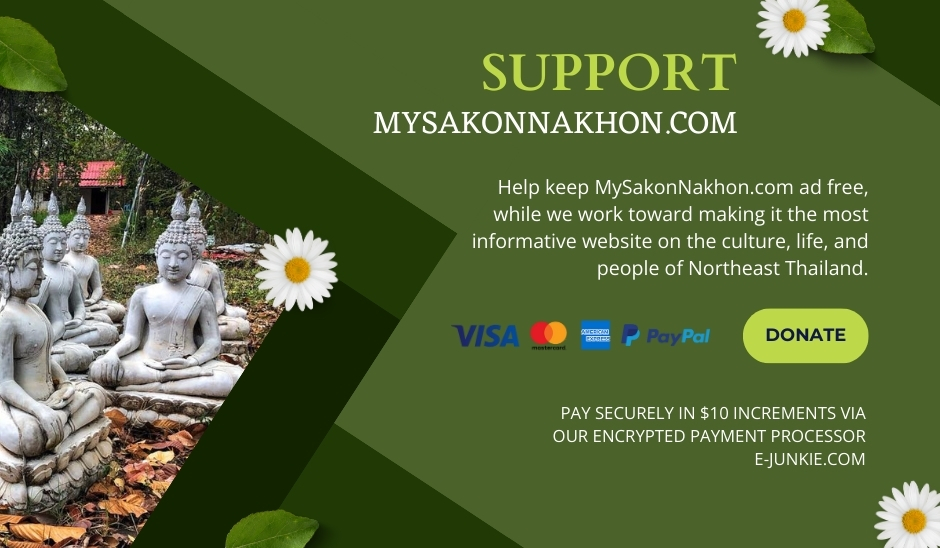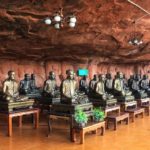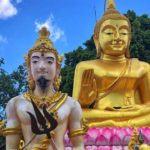
What Does Khao Phansa Mean? Buddhist Lent Day in Thailand
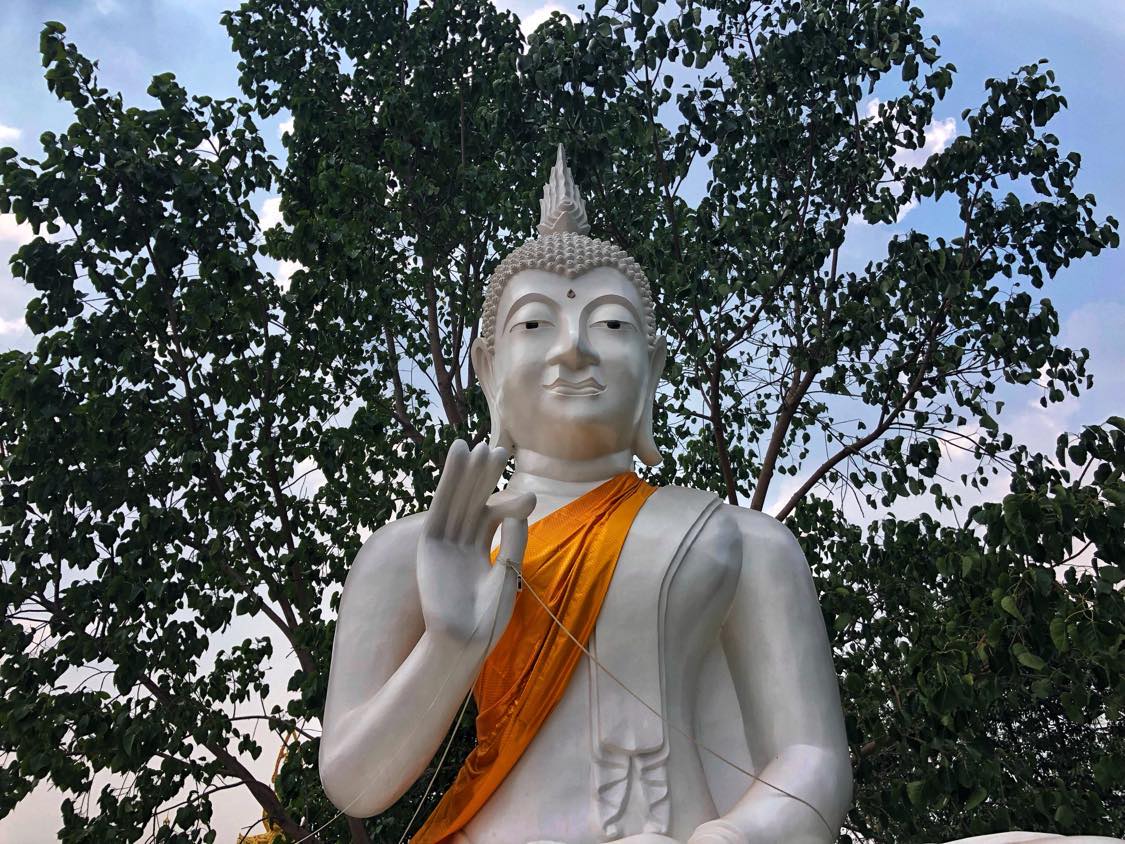
Wan Khao Phansa (เข้าพรรษา) literally means “Rainy Season Entrance Day,” but colloquially it means Buddhist Lent Day. In Thailand, the 3 month Buddhist Lent period also is called Phak Fon (พักฝน), which means the “Rains Retreat,” because this is the time when Buddhist monks must stop taking pilgrimages and remain in a Thai temple until the rainy season is over.
The Origin of Khao Phansa
The origin of Khao Phansa is attributed to the Lord Buddha, who was troubled by reports that monks were trampling on freshly planted rice fields and ruining the crops. He thus instructed his disciples to take a break from making pilgrimages during the rainy season and stay in one place — except to tend to the sick and infirm, or run important errands necessary for maintaining the temple where they reside.
The beginning of Khao Phansa (Buddhist Lent Day) is a national holiday in Thailand. This year (2023) Wan Khao Phansa is celebrated on August 2nd, while the end of Buddhist Lent (called Wan Ok Phansa) is celebrated on October 29th. This start date is well into the Thai rainy season which begins in late May or June. The rice fields thus have long been planted and protecting them is no longer one of the reasons for honoring Khao Phansa in Thailand.
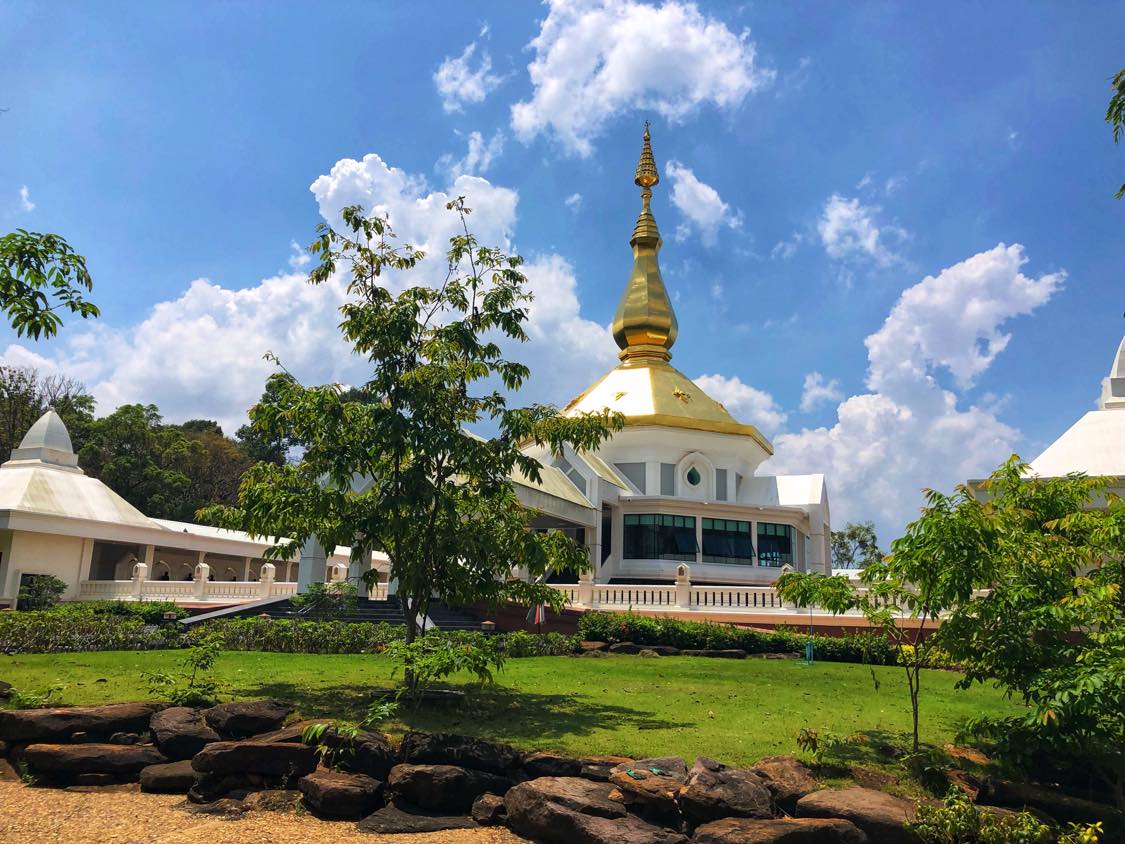
What Do Thai Monks Do During Khao Phansa?
The main reasons Thai monks are called to honor the Buddhist Lent (which stretches from the 1st day of the 8th lunar month to the 15th day of the 11th lunar month) is that it allows them to concentrate on practicing and studying the Dharma, while they also prepare to teach others the wisdom of the Buddha when the rainy season is over.
Where a Thai monk chooses to honor Khao Phansa is always an important decision in their life as a monk. As such, when you read the history of important monks in Thailand, the temples where they stayed at during Buddhist Lent are often highlighted. Ajarn Man Phurithatto, co-founder of Thailand’s Forest Tradition of Therevada Buddhism, spent his final 5 Buddhist Lents at Wat Pa Phurithatta Thirawat (วัดป่าภูริทัตตถิราวาส) in Sakon Nakhon — a Northeastern Thailand province that is one of Thailand’s spiritual Meccas.
How Do Thais Honor Buddhist Lent?
While the Buddhist Lent was established specifically for monks, many Thai laypeople (as well as some foreign expats) also honor Buddhist Lent. During the Khao Phansa months, a layperson may:
1. Refrain from drinking alcohol.
2. Stop eating meat and go vegetarian.
3. Read books about the Dharma and famous Thai monks.
4. Repair temple buildings, such as worship halls and monk’s cloisters.
5. Make candles for the monks (on the 1st day of Khao Phansa)
6. Spend more time with family, and extended family.
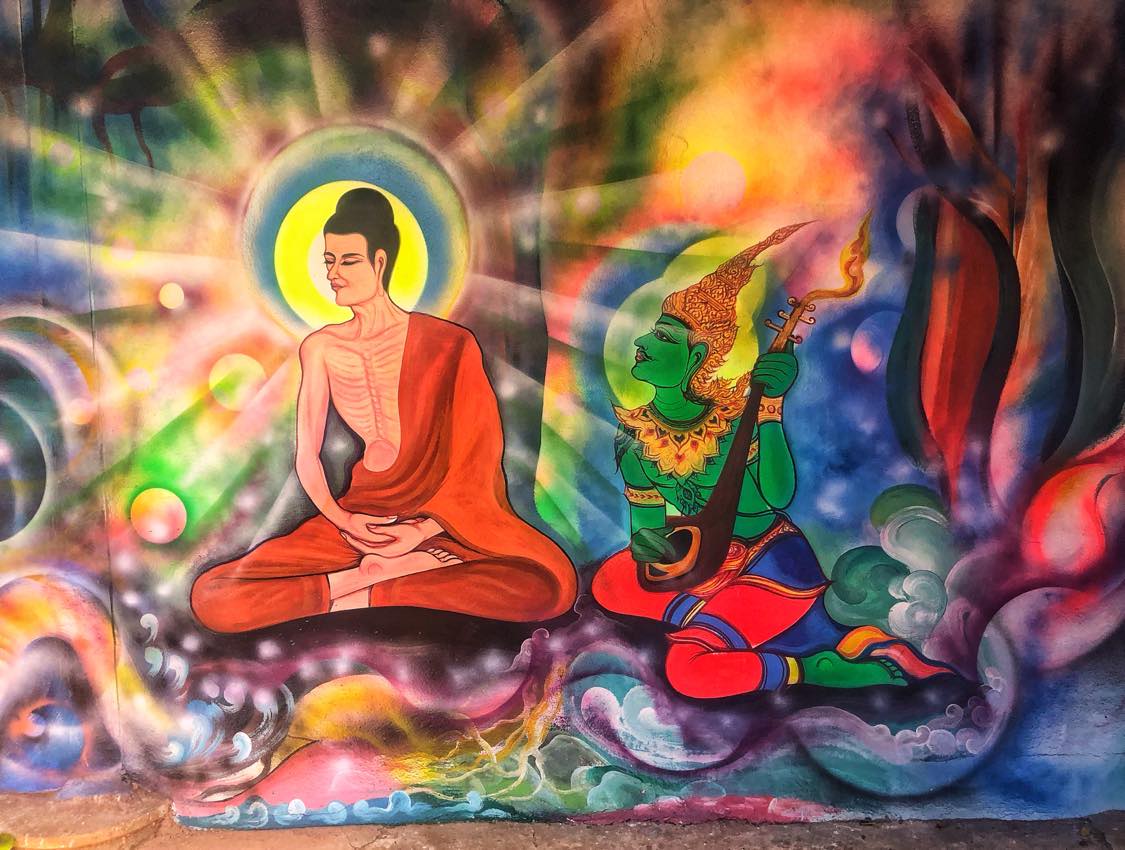
Khao Phansa Prayers & Blessings
There are many different prayers, blessings, and sermons delivered on Wan Khao Phansa. Short benedictions are often spoken in Pali, which is the sacred language of Therevada Buddhism (the official religion of Thailand). Sometimes the Thai monk delivering a blessing will follow up a Pali prayer with a Thai translation, but often they will not.
One of our favorite Khao Phansa prayers is a short and simple one that a Sakon Nakhon monk taught us many years ago. In Pali, the prayer goes like this:
อะหัง ขะมามิ ตุมเหหิปิ ขะมิตัพพัง
a-hăng kà-maa-mí dtum-hăy-hì-bpì kà-mí dtàp pang
Translated from the Pali into Thai, the prayer reads:
ข้าพเจ้ายกโทษให้ และขอให้พวกท่านพึงยกโทษให้ข้าพเจ้าด้วย
kâa-pá-jâo* yók tôht hâi láe kŏr hâi pûak-tâan peung yók tôht hâi kâa-pá-jâo dûay
In English, the prayer means: “I forgive. And I hope you forgive me too.”
It’s our favorite Khao Phansa prayer because it reminds us of those two lines from the Lord’s Prayer which Jesus taught his disciples: “Forgive us our trespasses, as we forgive those who trespass against us,” and that there is much crossover between the Dharma and the wisdom of Christ.
*Note that the Thai words kâa-pá-jâo (ข้าพเจ้า) and pûak-tâan (พวกท่าน) are very formal pronouns to refer to “I” and “you” and are words that are rarely used except in ceremonial situations and in official documents in Thailand.
- The Royal Ploughing Ceremony in Thailand – A History - May 8, 2024
- Dying Well the Buddhist Way in Thailand - May 7, 2024
- Comforting Words for the Brokenhearted in Thailand - May 6, 2024
